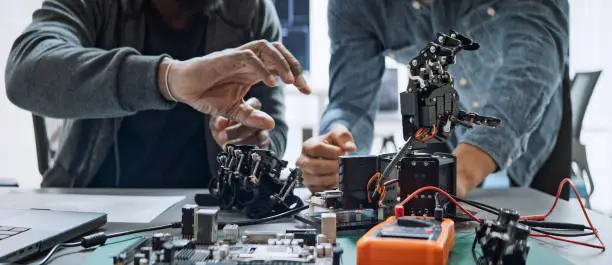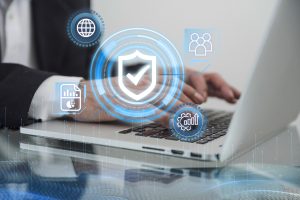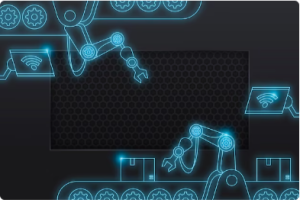The advent of changing technological has brought drastic changes in the fabric of the society, and USA spearheads the entire showroom of technology advancement. From AI and biotechnology onward, these continuous breakthroughs promise to revolutionize industries and improve the quality of lives However, every single one of these raised such complications of serious ethical questions. How should an individual balance progress and privacy? What happens when robots take up from where humans stopped? These are just some of the dilemmas that come to mind with regard to ethics in technology innovations in the USA. This article delves into some of these and their ramifications and possible solutions.
The Fast Pace Of Technological Advancements

- America for many centuries has been a leader in technological around the globe.
- She has had array of global companies: Apple, Google, Tesla, Microsoft. These are just some of the companies that have created many new ideas and brought them to our lives-from how we work and how we interact to how we play.
- The rapid changes us, but there is no keeping pace with this development in between the ethical problems.
The basic concerns:
- AI and Machine Learning: Be it facial recognition or predictive analysis, AI has tended to get into each route of decision making and approaches. Its potential for discrimination, spying, and misuse raises serious types of ethical problems.
- Automation and Job Loss: Robotics, automation advances, will eventually lead to millions of jobs being lost. This is going to dislocate economic and social normality.
- Data Privacy and Surveillance: With companies pulling down heaps of data now and tomorrow government agencies, ordinary people are slowly losing privacy.
- Biotechnology: CRISPR gene editing offers promises of medical breakthroughs but also raises ethical dilemmas concerning the modification of human genes.
Tech solutions for climate change
- Discriminatory hiring algorithms.
- Racial biases in predictive policing software.
- Gender biases in healthcare recommendations.
- Moral Concerns:
- Who should ensure fairness in the AI systems?
- In what ways might corporations and governments redress the underlying bias?
Automation and Tomorrow\’s Employment
- Autonomus productivity does increase efficiency with reduced cost; however, such jobs are at threat within manufacturing, retail, and transport.
Moral Questions:
- Who is in charge of overseeing fairness in AI systems?
- In what ways can corporations and governments address any underlying instigators of bias in public?
Automation and Future Work
- Autonomous works do improve efficiency and reduce cost; however jobs are under threat in manufacturing, retail, and types of transportation..
- McKinsey reports identified that as high as 30 percent would be automated in 2030 mainly affecting low-skilled workers.
Ethical Questions:
- What will society do for displaced workers?
- Must all companies reskill instead of employing workers under automation?
Ethical Boundaries in Biotechnology
- CRISPR-like technology promises to eradicate genetic diseases and prolong the life expectancy of humans.
- Such benefits also raise fundamental questions about ‘designer babies’ and unforeseen genetic events.
Ethical Issues:
Where does one draw the line regarding genetic editing?
- The deciding factor tu quoque actually refers to determining who decides what is ‘ethical’ in biotechnical enhancement.
Environment-causing Technology
- The use of modern technologies can often be associated with seeking solutions to environmental problems.
- Nevertheless, extensive amounts of energy are consumed by the mining of cryptocurrencies, while production leaves vast amounts of e-waste.
Ethical Questions:
- What can be potentially done by companies to gain a greener face?
- What should governments do to lighten the burden on regulations against the environment?
The Role of Policy and Regulation
- All these ethical matters certainly involve rigorous policies and regulations. In the USA, the lawmakers and organizations take steps to develop these ethical guidelines on technological as including:
- AI Ethics Frameworks: These frameworks are being crafted by federal agencies and private organizations to help in the ethical use of AI.
- More on Data Privacy Laws: Legis
- Usually laws lag behind these advancements of technology and fill up gaps for exploitation with development. Hence, all the policymakers have to correlate and work proactively into understanding and resolving ethical dilemmas.
The Role of Companies and Individuals
- Regulations, of course, play a very small yet vital role, and it is primarily the role of companies and individuals that speaks into the honor of value considerations.
- Corporate Responsibility: Corporate organizations should concentrate on ethical considerations while deciding. This involves investing in diversity, transparency, and thus sustainable practices.
- Consumer Awareness: People redefine the consumer movement and its direction through conceiving empowerment in that sense of supporting ethical companies, learning about their advocate privacy rights, and finally educating through the technological they use.
The Road Ahead
For trade to navigate the ethical dilemmas of its innovations, the USA has to make them into collaborative forums attended by global stakeholders, including tech companies, policymakers, academia, and civil society. Key strategies would be as follows:
- Increasing Transparency: Ensure they reveal how their technological works and how they monetize it through different types of data.
Promoting Public Discussion: Bring Other Voices into the Conversation About the Future of Technology. - Investing in research through ethical studies involves funding interdisciplinary studies into how society is affected by technology.
- Creating international standards for ethical technological development worked with other countries.
Conclusion
Technological advances in the United States have the potential to metamorphose living standards through solutions to world problems. Unfortunately, most of these innovations are saddled with ethical difficulties that call for a thoughtful assessment of ethical matters. Balancing with progressive measures, entrenching collaboration, and prioritizing transparency could make the country serve as a beacon for other nations by which to measure their efforts in developing pro-human technologies, ironically in line with ethical principles. It requires technological innovations with moral endurance.




